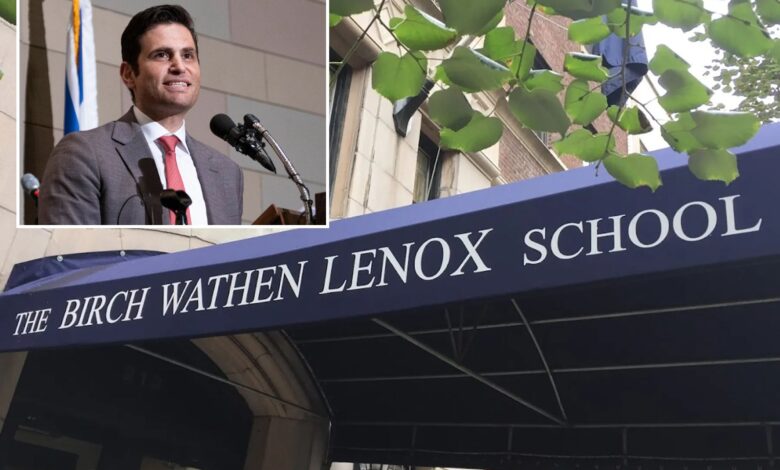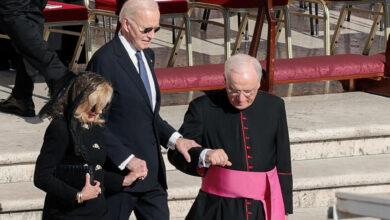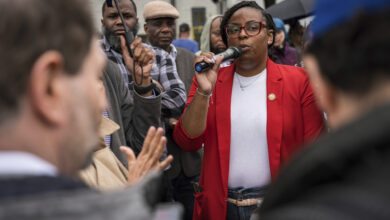How one NYC school is challenging DEI dogma — and shaping the leaders of tomorrow

The re-election of Donald Trump has left many progressives worried about the future of Diversity, Equity, and Inclusion (DEI) programming. And with good reason.
Yet, as a head of a school in New York City, I’ve come to recognize an ironic truth: DEI programs, as traditionally practiced, can be divisive, placing students into rigid roles that can drive them apart instead of bringing them together.
Which is why a new approach to diversity is needed, one that avoids the politicized dogma that now defines the DEI landscape.
At our school, Birch Wathen Lenox, we have embraced a different model – one that prioritizes constructive dialogue, intellectual rigor, and respect for diverse viewpoints.
We avoid an identity-based curriculum that paints broad swaths of students in a single light.
Instead, we promote a unified community that values diversity of thought, experience, and shared principles.
Conventional DEI frameworks are long-known for their problematic principles.
Students are often labeled “oppressed” or “oppressors” — the latter saddled with the burden of dismantling historic injustices, the former implicitly encouraged to view their futures as defined by these same structures.
This binary view denies any sense of agency and reduces personal growth to predetermined identity categories. Also worrisome: Traditional DEI efforts often ignore the long history and continued threat of antisemitism.
The impact of traditional classroom DEI programs goes beyond identity categories. DEI in schools can push a single set of ideological views as virtuous.
Topics like “White Supremacy Culture” — which bafflingly paints habits such as “punctuality” as racist — and mandated ethnic “affinity groups “ separate students, despite scant research supporting their effectiveness.
In some cases, academic standards have even been lowered to address perceived inequities in achievement that further reinforce damaging stereotypes rather than supporting students’ full potential.
We have, instead, embraced a model that fosters respectful dialogue and intellectual rigor.
Our Constructive Dialogue Program, for instance, encourages students to engage in open inquiry and debate. They’re introduced to a diverse range of perspectives and taught to respond with reasoned arguments rather than emotional reactions.
Additionally, courses such as Democracy and Dissent, a History of the Middle East, and Holocaust and Genocide Studies explore history and current events critically and empathetically — without saddling them with the burden of past wrongs based solely on identity.
To support this approach, our Dean for Curriculum and Academic Freedom ensures that our program remains balanced, intellectually challenging, and inclusive.
We further recognize students who engage thoughtfully and respectfully with diverse ideas through the John Stuart Mill Award for Excellence in Debate and Open Discourse.
We’ve collaborated with free-speech organizations such as the Foundation for Individual Rights and Expression and the Constructive Dialogue Institute — and, while we have teachers who oversee diversity and inclusion work, we do not employ a formalized DEI officer.
Our goal is to build a school culture that honors intellectual curiosity and values constructive engagement.
Our commitment to revisiting and revising DEI policies does not mean we ignore tragic histories or current injustices.
Our curriculum includes historically marginalized voices and ensures that students develop a deep appreciation for the events but are not blamed for past wrongs.
We avoid concepts such as “settler colonialism,” which frames American students as guilty for living in this country. We also reject narratives that single out Israel with undue criticism. We recognize that these topics are complex and nuanced, and tackle them without unnecessary guilt or shame.
Parent feedback at Birch Wathen Lenox has been overwhelmingly positive.
Families appreciate our commitment to free expression and constructive dialogue, particularly our stance on directly addressing the recent rise of antisemitism in America.
Parents have responded, often with relief, to our unorthodox orthodoxy — applications are up 250% since 2023. “We were drawn to your enthusiasm for constructive dialogue, allowing students to speak their minds freely,” one newly registered mother recently told me.
In a climate where DEI has become polarized and politicized, an alternative model exists that genuinely privileges inclusion, intellectual freedom, and respect for all.
The future of DEI should be defined by a shared commitment to empowering every student to think critically and compassionately, not by rigid identity categories or ideological biases. Our vision for diversity values merit, respect, and excellence.
This approach will not only prepare our students to engage thoughtfully and effectively in a complicated world but also make them informed citizens and leaders of tomorrow.
Bill Kuhn is Head of School at the Birch Wathen Lenox in New York.




